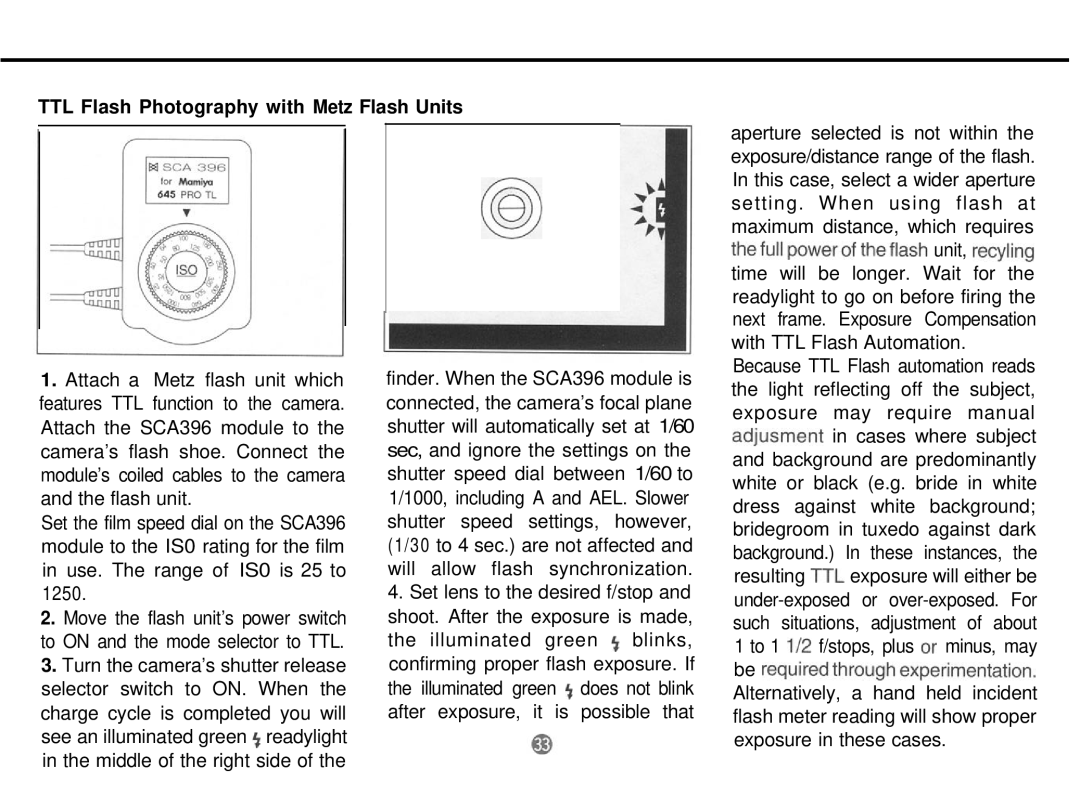645 PRO TL specifications
The Mamiya 645 PRO TL is a prominent medium format camera, celebrated for its exceptional build quality and versatility. Introduced in the 1990s, it quickly gained popularity among professional photographers and serious enthusiasts. This camera is part of Mamiya's 645 series, designed to cater to the needs of a wide range of photographic applications, from portrait and landscape photography to commercial work.One of the standout features of the Mamiya 645 PRO TL is its 6x4.5cm negative size, which allows for high-resolution images with stunning detail and rich tonal range. The camera uses the 645 film format, striking a balance between portability and image quality that larger formats often cannot achieve. This makes it an ideal choice for photographers who require the enhanced image quality of medium format without the cumbersome nature of larger cameras.
The Mamiya 645 PRO TL incorporates a modular design, allowing users to swap out various components easily. One of the highlights is its interchangeable film backs, enabling photographers to switch between different film types or even use instant film if desired. Professionals appreciate this feature as it adds flexibility and convenience to their shooting experience.
Another impressive characteristic of the Mamiya 645 PRO TL is its advanced metering system. The camera features a TTL (Through The Lens) metering system, ensuring accurate exposure readings even in challenging lighting conditions. It also offers various exposure modes, including manual, aperture-priority, and shutter-priority, giving photographers the tools they need to achieve their desired results.
The Mamiya 645 PRO TL is compatible with a rich lineup of lenses, offering a range of focal lengths that cater to different styles of photography. The lenses are known for their sharpness and bokeh, making them a favorite among portrait photographers who seek pleasing background defocus.
Durability is another hallmark of the Mamiya 645 PRO TL. The camera is constructed from high-quality materials, providing a robust and reliable platform for shooting in diverse environments. Photographers can trust the Mamiya 645 PRO TL to withstand the rigors of professional use.
In summary, the Mamiya 645 PRO TL stands out in the medium format photography landscape due to its versatility, superb image quality, and user-friendly design. Its modular nature, advanced metering system, and compatibility with excellent lenses make it an enduring choice for photographers looking to elevate their craft. Whether capturing stunning landscapes or intimate portraits, the Mamiya 645 PRO TL continues to be a cherished tool for many in the photographic community.

